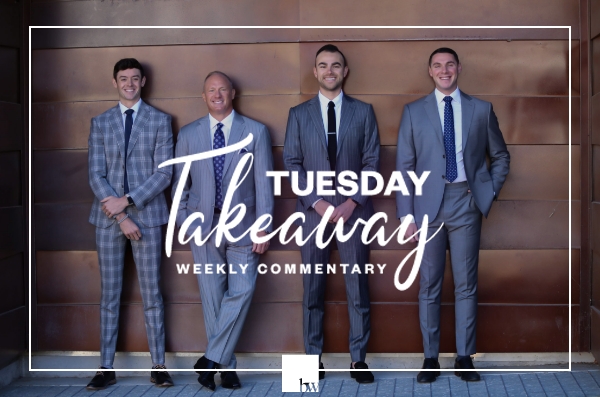
Market Insights:
January 2, 2024
Posted on January 02, 2024
Planning and Guidance, Tailored To Your Life and Goals
Tuesday Takeaway
Posted on January 27, 2015
The Markets There may be potential for a reality television program starring central bankers and the making of economic policy. It could be called, “The Real Central Bankers of the European Economic Community.” Just imagine the last two weeks’ episodes. Two weeks ago, the Swiss National Bank shocked markets by unpegging its currency and sending the value of the Swiss franc skyward. Affairs last week were less unexpected. The European Central Bank (ECB) finally made up its mind and committed to a new round of quantitative easing (QE). There was no exchange of rings embedded with multi-carat precious gems, but the ECB pledged to buy 60 billion euro of assets (public debt and government bonds, primarily) every month from March 2015 through September 2016. That’s quite a leap from the 10 billion euro of assets it was already buying. The Economist pointed out Germany’s Bundesbank wasn’t thrilled about the commitment and insisted on an agreement that would limit its risk:
“When the ECB conducts monetary policy by lending to banks, any risk of losses is, as a rule, shared between the 19 national central banks that actually execute the policy, according to “capital keys,” which reflect their countries’ economic and demographic weight in the euro area; the Bundesbank’s for example is 26 percent whereas the Bank of Italy’s is 17.5 percent… But, QE will be conducted in a quite different way… each of the 19 national central banks, which together with the ECB constitute the Eurosystem, will buy the bonds of its own government and bear any risk of losses on it.”
Sure, it’s exciting, but let’s not lose sight of the reason behind the ECB’s decision. After watching the U.S. Federal Reserve Bank, the Bank of England, and the Bank of Japan engage in QE, the ECB decided it might be just the thing to reflate the Eurozone’s economy. Global markets seemed to think it’s a pretty good idea, too. Many finished the week higher.
“Two trends have dominated the world of burgernomics over the past six months: currency markets have bubbled like potatoes in a fryer as the oil price has fallen to finger-licking lows and central banks have cooked up new monetary stances. The currencies of commodity exporters have been burnt while those of big importers have sizzled. Meanwhile, the end of quantitative easing in America has supersized the dollar, whereas the mere prospect of it in Europe has made a happy meal of the euro.”
Since a Big Mac in the United States cost about $4.79 last week, the Swiss franc was quite overvalued. That’s not the case with currencies elsewhere, though. Here are the prices of a Big Mac in a few key locales: ]]>
]]>